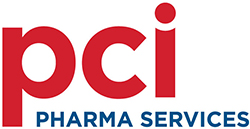Richard Yarwood is a man who likes a challenge.
When he joined Penn Pharma as Chief Executive, the company had been run by the Chairman who had been acting as interim CEO for about 12 months. ‘Pharmaceutical contract manufacturing was not his expertise, so in essence the firm had been in a holding pattern for a year,’ explains Yarwood. ‘At that time, Penn’s strategy had been based on manufacturing specials (unlicensed medicines) for retail pharmacies and hospitals. This was a competitive area as there were no price restrictions on unlicensed medicines but as more players came to the market and governments had less and less to spend on healthcare the returns started to diminish. Essentially, being a specials manufacturer was not delivering as a strategy,’ he says.
Yarwood needed to get the business on an upward growth trend and had three months to come up with a plan. He first phoned Penn’s customers to find out what they thought of the company.
The firm had a reputation for solving problems for customers with difficult to handle compounds and providing bespoke manufacturing/packaging solutions. ‘Going forward, we needed to do something different to be able to compete profitably. We therefore listened to our customers and became more niche and moved into high containment. We’re now in a sector of pharmaceutical manufacturing where there is less competition and we provide a great service,’ he says.

